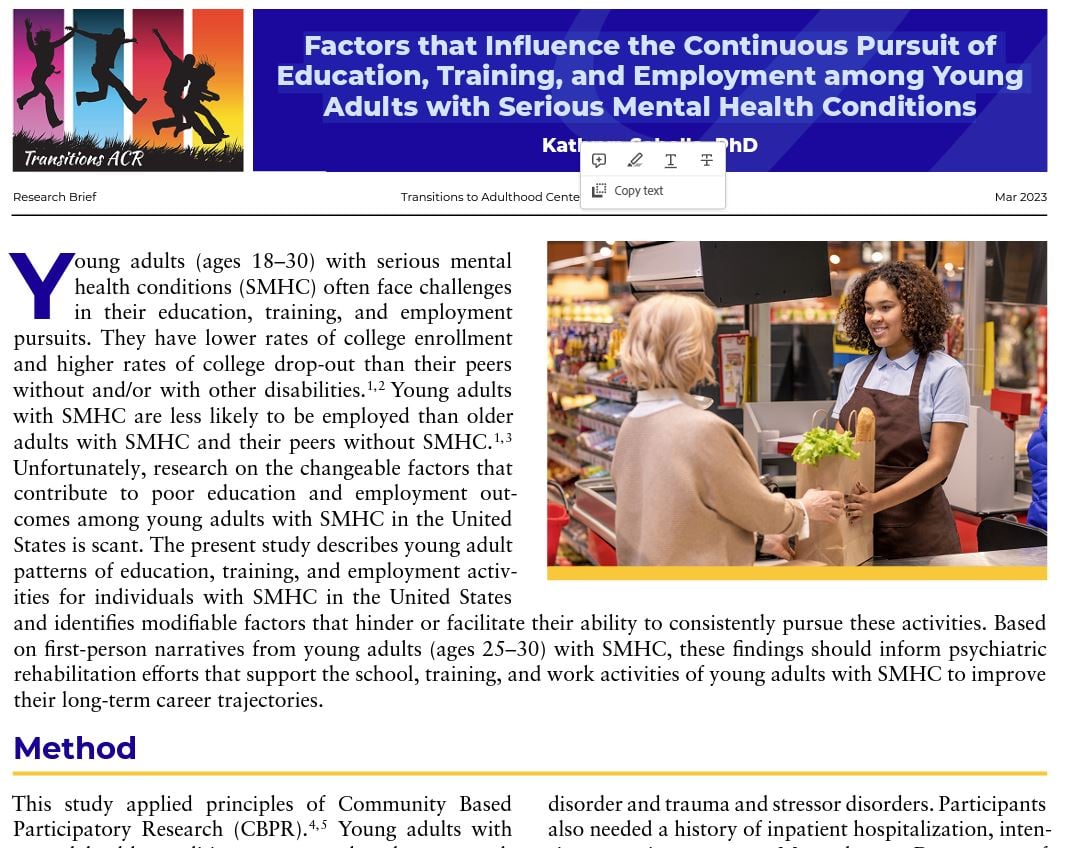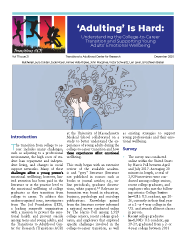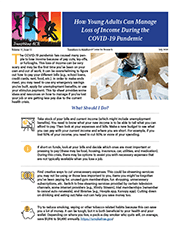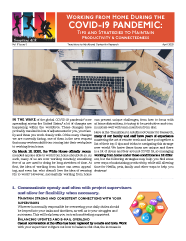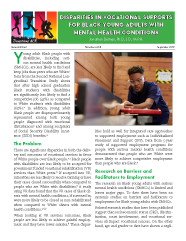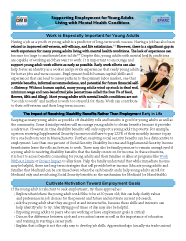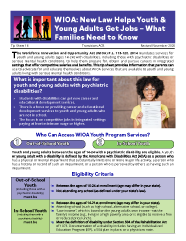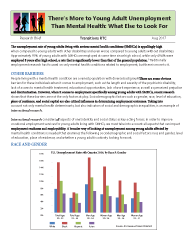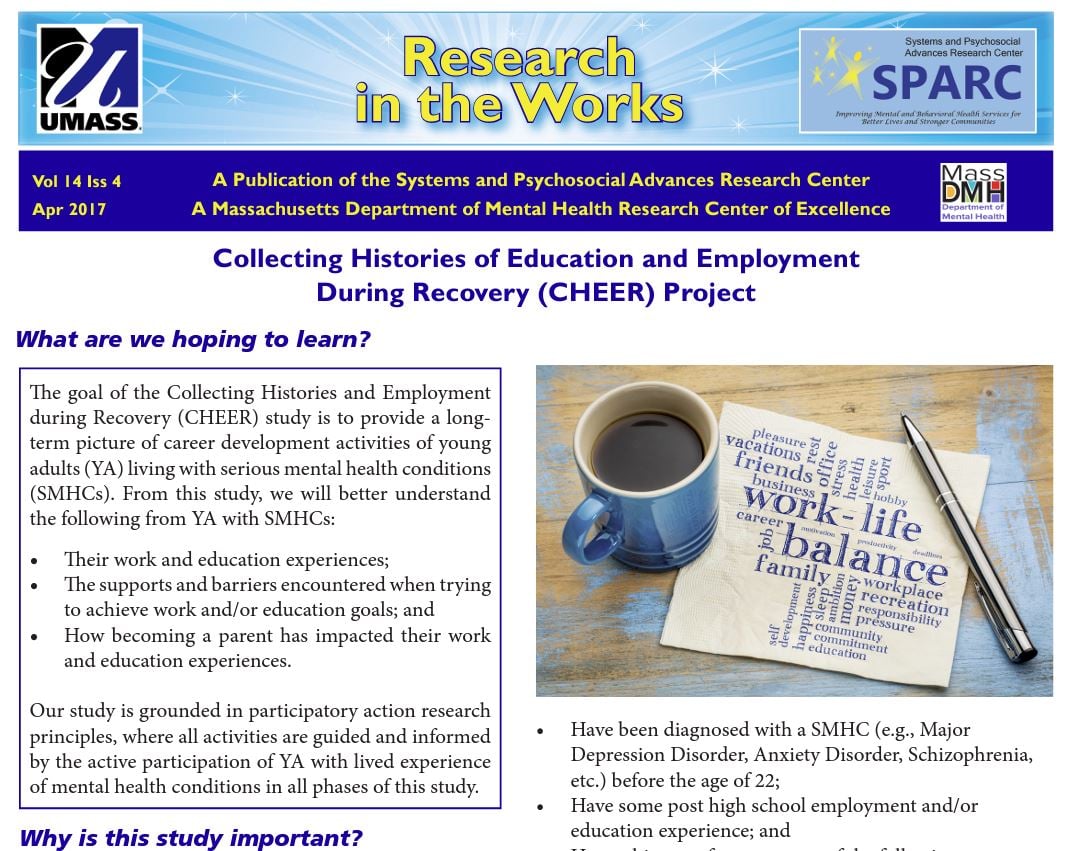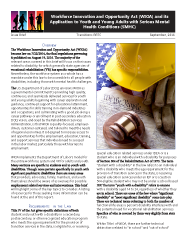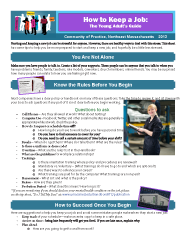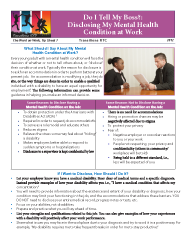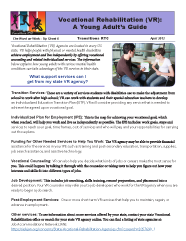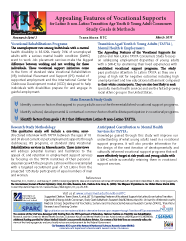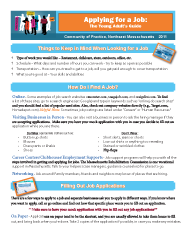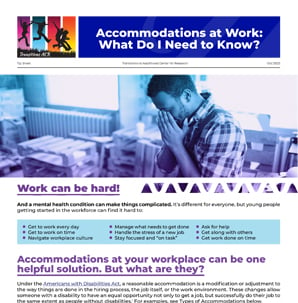
Tip Sheets and Issue Briefs
-
Oct 26 2023
![thumbnail of tip sheet]()
-
May 26 2023
![thumbnail of tip sheet]()
-
Mar 13 2023
![thumbnail of brief]()
-
Dec 09 2020
![thumbnail of tipsheet]()
Adulting Is Hard: Understanding the College-to-Career Transition and Supporting Young Adults’ Emotional Wellbeing
By: Laura Golden, Jade Moser, Aimee Vella-Riplee, John MacPhee, Victor Schwartz, Len Levin, Kathleen Biebel
-
Jul 22 2020
![thumbnail]()
How Young Adults Can Manage Loss of Income During the COVID-19 Pandemic
By: Deirdre G. Logan
-
Apr 02 2020
![""]()
Working from Home During the COVID-19 Pandemic: Tips and Strategies to Maintain Productivity & Connectedness
By: Ian A. Lane, Michelle G. Mullen, Amanda Costa
-
Sep 24 2019
![""]()
-
Oct 31 2018
![""]()
Supporting Employment for Young Adults Living with Mental Health Conditions
By: Marsha Langer Ellison, Michelle G. Mullen
-
Sep 17 2018
![""]()
WIOA: New Law Helps Youth & Young Adults Get Jobs – What Families Need to Know
By: Deirdre G. Logan, Laura Golden
-
Aug 21 2017
![""]()
There's More to Young Adult Unemployment Than Mental Health: What Else to Look For
By: Michael Bryer, Rosalie A. Torres Stone, Zlatina Kostova, Deirdre G. Logan
-
Apr 01 2017
![thumbnail of brief]()
Collecting Histories of Education and Employment During Recovery (CHEER) Project
By: Kathryn Sabella, Laura Golden, Kathleen Biebel
-
Sep 20 2016
![""]()
-
Dec 17 2014
![""]()
-
May 28 2014
![""]()
How to Keep a Job: The Young Adult's Guide
By: Northeast Community of Practice
-
Dec 11 2012
![""]()
Do I Tell My Boss?: Disclosing My Mental Health Condition at Work
By: Amanda Costa, Lisa M. Smith
-
May 14 2012
![""]()
Vocational Rehabilitation (VR): A Young Adult’s Guide
By: Jennifer Whitney, Lisa M. Smith, Tania Duperoy
-
Mar 31 2011
![""]()
Appealing Features of Vocational Supports for Latino & Non-Latino Transition Age Youth & Young Adult Consumers
By: Rosalie A. Torres Stone, Colleen E. McKay, Charles W. Lidz, William H. Fisher, Marsha Langer Ellison, Lisa M. Smith
-
Jan 31 2011
![""]()


